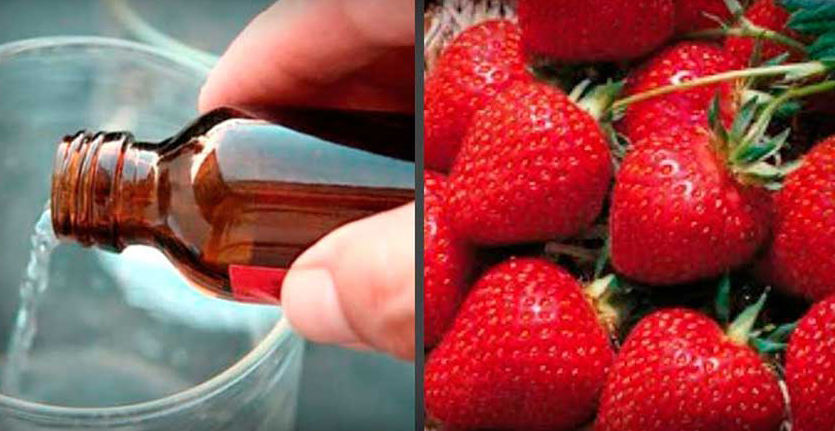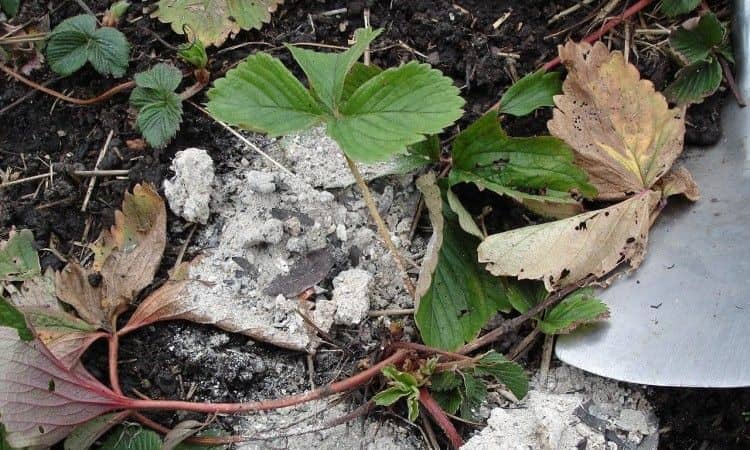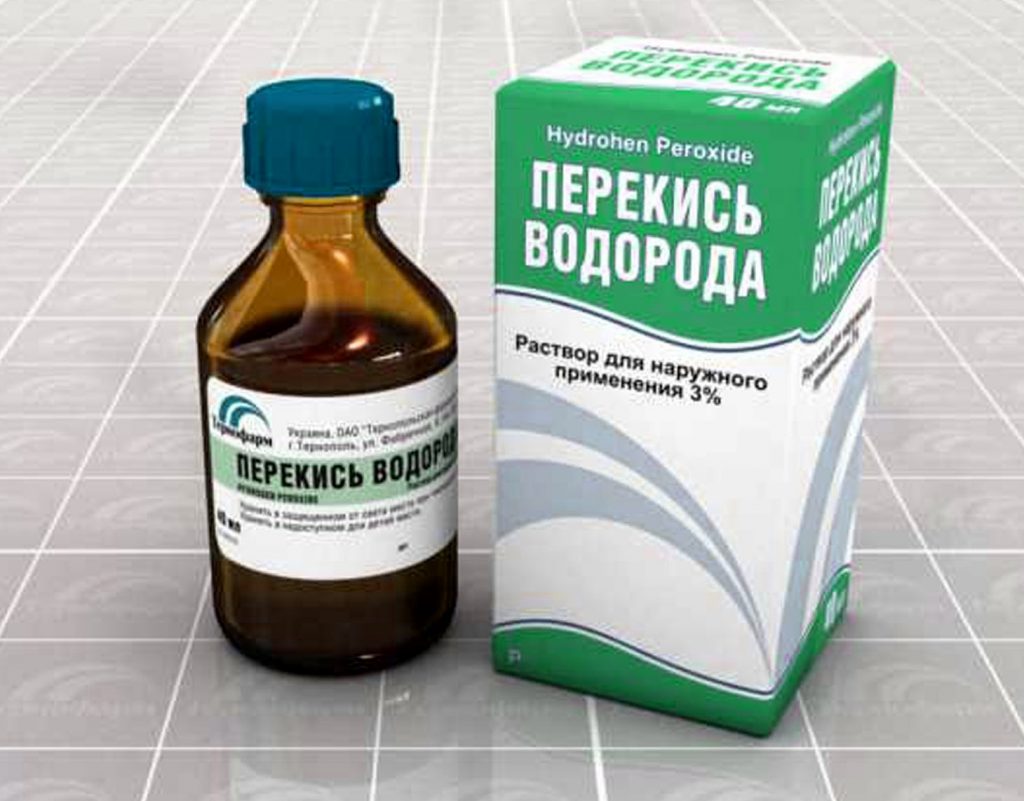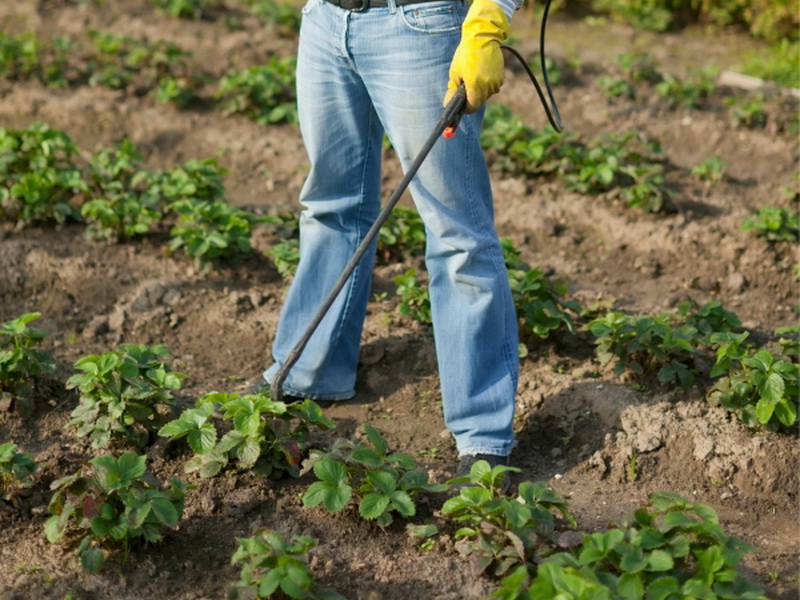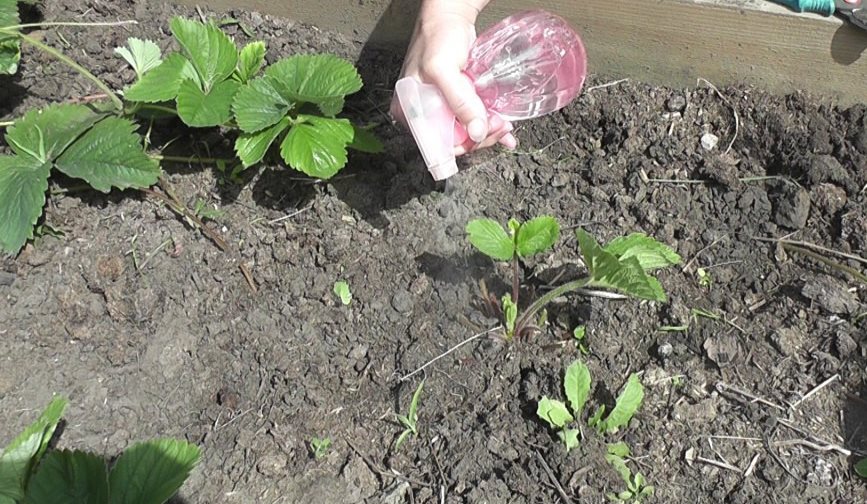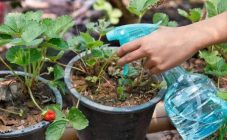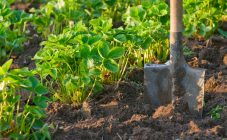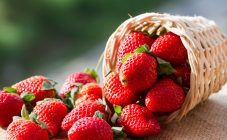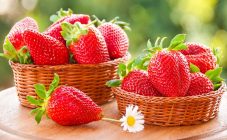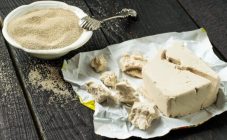Content:
In the garden, hydrogen peroxide (peroxide), or hydrogen peroxide, has been used since the late 20th century. It is a clear, colorless liquid with a slightly acidic reaction. It dissolves in water, alcohol, has a "metallic" taste. Hydrogen peroxide (Н2О2) is perfectly reduced to ordinary water Н2О, while losing the second oxygen atom, which acts as a destroyer of pathogenic microorganisms.
Effective pest control
Ammonia
In addition to the use of ammonia in the fight against diseases, pests and in their prevention, ammonia water is successfully used as a nitrogen fertilizer. Spraying strawberries with a solution of ammonia makes it possible to forget about aphids, nematodes, ants and other pests for a long time. With its systematic use, there is a chance to get rid of the root nematode, weevil and May beetle (in early spring, after flowering and after harvesting).
Iodine
It is considered a "delicate" oxidant, has a disinfecting effect, due to its disinfecting qualities, it is able to prevent the occurrence of various bacterial diseases. Processing strawberries (strawberries) with iodine solution at the beginning of the spring period prevents the appearance of a weevil, the occurrence of gray rot and red spot.
Bordeaux liquid
This is a suspension made on the basis of copper sulfate and lime (calcium oxide or hydroxide). Popular, due to its long-lasting action, adheres perfectly to the plant, in contrast to pure copper sulfate. Bordeaux liquid is an excellent way to control pests, but its annual use contributes to the excessive accumulation of copper in the soil, and elevated levels of heavy metals are highly undesirable for people. Therefore, it should be used only in desperate situations.
Boric acid
It is a white powder, dissolves in water for a long time, it is practically safe when handling. Protects strawberries from pathogenic microbes, increases productivity and improves the sugar content of berries. Boron stimulates ovaries, so it is more used as a top dressing for the garden.
Wood ash
It has antibacterial and antiseptic properties, due to which the keeping quality of strawberries increases and the taste becomes sweeter. Its beneficial properties allow not only to fight pests, but also help to feed the crop. With the help of ash, you can fertilize the earth, improve its alkaline qualities, composition.
Hydrogen peroxide
Hydrogen peroxide has equally unique properties. In the war against the strawberry parasites, its oxidative quality is most significant.
Solutions of various concentrations are on sale - from 1 to 98%. Available in liquid, tablet and powder form. In garden conditions, the most optimal use of 3% peroxide.
Compared to the rest, it has the most environmentally friendly characteristics, does not harm humans, nature, of course, when using reasonable dosages.
Peroxide application
The use of hydrogen peroxide for strawberries has two directions: disinfection and aeration.
Hydrogen peroxide kills viruses, bacteria and harmful microbes. Leaves behind oxygen and water. Peroxide is considered to be the easiest and safest way to get rid of rotting strawberries.
Strawberry peroxide is used in a solution made from 2 tbsp. l. peroxide and 1 liter of water, in difficult situations, you can increase the dosage to 3 tbsp. l. All strawberry bushes should be treated with the solution made in the morning or evening. Then, every 7 days, repeat the procedure throughout the season.
To process the soil in the spring, use the following solution: for 1 liter of water 5 tbsp. l. 3% hydrogen peroxide. The soil must be watered with the resulting mixture to prevent fungal diseases.
Strawberry bushes are sprayed throughout the growing season, the last treatment is before autumn, this saves strawberries from gray rot.
An excellent remedy for aphids, scale insects, mealy worms and blacklegs is a solution of:
- 50 ml of 3% peroxide;
- 2 tbsp. l. medical alcohol;
- 3 drops of liquid soap;
- 900 ml of water.
Gardeners are advised to dilute this solution immediately before use, treat the stems and leaves with it.
The redox reaction of hydrogen peroxide promotes the oxidation of nitrates and nitrites, restores the salts of iron and manganese needed by plants in the garden. Watering at the root helps to fertilize the root system with oxygen, improves the hygienic state of the roots, eliminating all pathogens, thereby significantly raising the plant's immunity. Strawberries grown on clay soils especially need oxygen.
Peroxide to increase the keeping quality of fruits
70 g of peroxide is taken on a basin of cold water, berries are placed in the resulting solution for 15 minutes, taken out, washed with clean water, dried. Peroxide disinfects, removes chemicals from fruits, thereby significantly increasing their keeping quality.
Errors in use
Environmental friendliness has made hydrogen peroxide an indispensable tool in gardening. Hydrogen peroxide for strawberries is, in fact, a natural fungicide (antifungal) and pesticide (control of pests, diseases), both a growth stimulator and a way to feed the soil with oxygen. Н2О2 - its chemical formula, melt and rain water after a thunderstorm has a similar composition.
